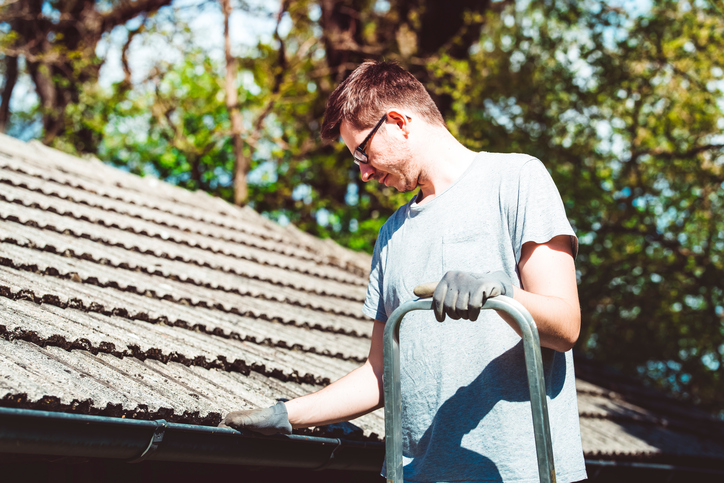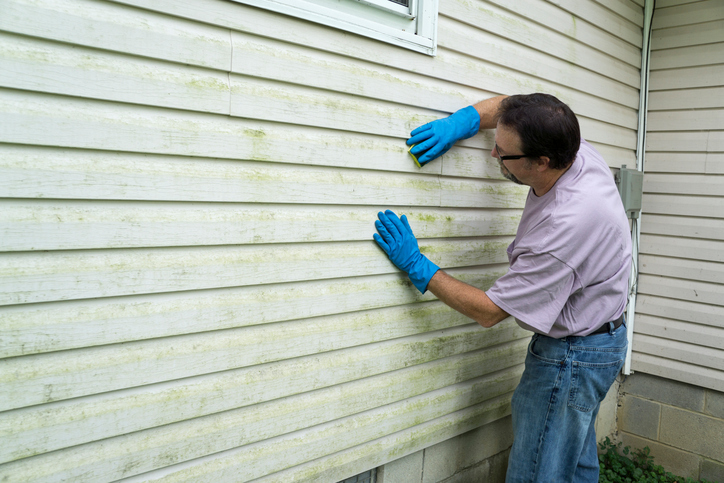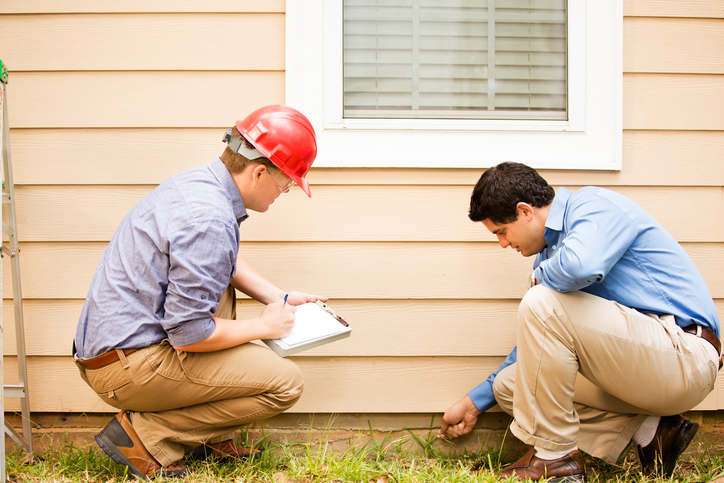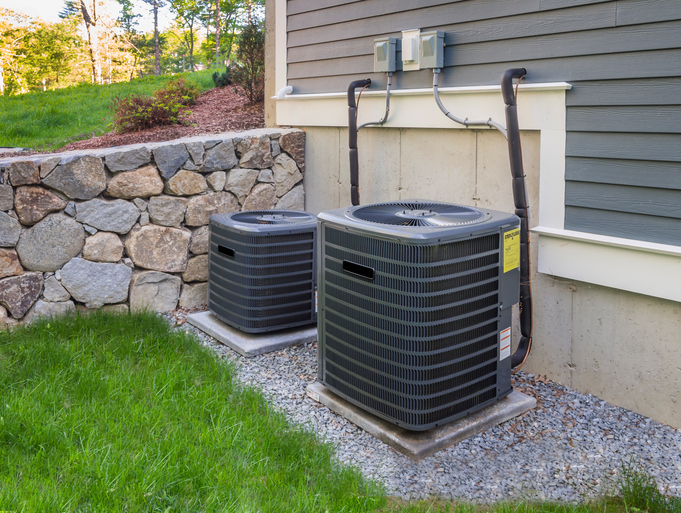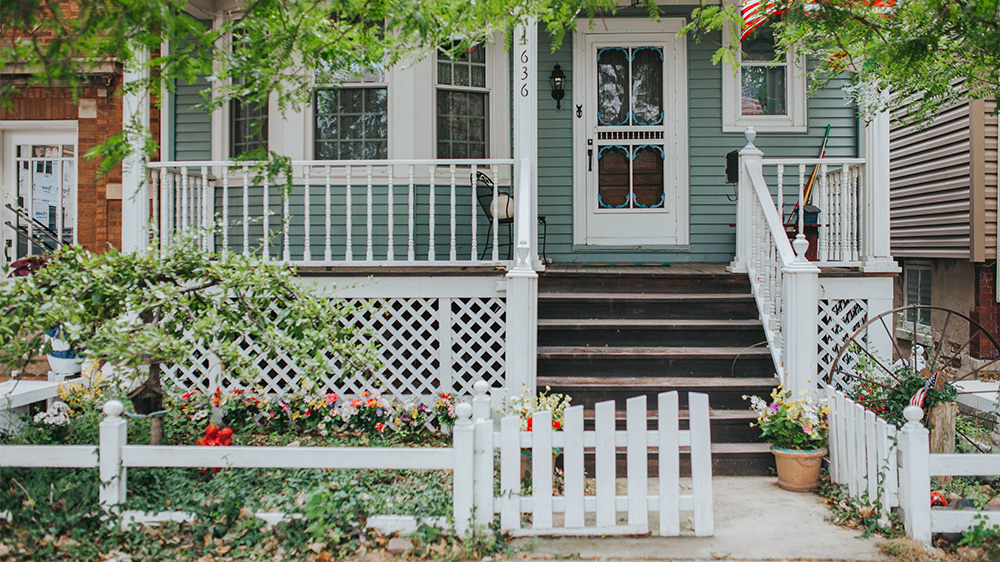First-time homebuyers are a declining group. Historically, 40% of homebuyers have been first-time buyers, but that percentage continues to shrink, even as millennials continue to show more interest in becoming buyers (eventually). If you’re already a homeowner, your wheels might be spinning right about now — if people aren’t buying starter homes, then the rental market has to be booming, right? It is in many areas, particularly where unemployment is low, the population is high, and homes are not overpriced. But before you start searching for a home for sale in Austin, TX to rent, you should think about the responsibility that comes with being a landlord — and learning by trial and error is not the best way to go about gathering intel (or a steady income).
2017’s Most Important Summer Home Maintenance Projects


These projects are what you should be focusing on this summer regarding maintenance on your home.
Being proactive when it comes to your home’s maintenance can save you time and money! Focus on maintaining these 5 areas.
With the bright sunlight and warm temperatures that accompany summer, you may be spending more time outside — and you may be noticing areas of your home’s exterior that need repair. But there’s more reason to tackle your home maintenance projects this summer than simply cosmetic appearance. Maintaining your home will prevent major leaks and damage that may eventually require professional help, usually when its most expensive and inconvenient for you.
Being proactive when it comes to your home’s maintenance can save you time and money, and it makes sense to do it when you’re more likely to be outdoors in the comfortable summer months. Here are five areas of your house that are most important to keep updated.
-
Windows

Start by cleaning the exterior of your windows with hot soapy water and a sponge or squeegee. If you’ll need a ladder, make sure to review safety guidelines.
While you’re washing, inspect each window pane for cracks. Double or triple glazed windows with damaged seals or cracks may need to be replaced. Think back: Have your windows had excessive condensation inside through the winter and spring? That’s another sign that the seal might have been compromised and that your window might need to be replaced.
You’ll also want to inspect caulking and weatherstripping around your windows. Recaulk any spots where the caulk is loose or chipping away, or consider applying new caulk for a tight seal. Summer is a perfect time to do this because the warm temperatures and low humidity will help the caulk set perfectly.
Finally, wash window screens and replace any screens that have rips or holes.
-
Roof

Visually inspect your roof every summer for missing or broken shingles, shakes and panels. Again, if you’ll be using a ladder and climbing up to your roof, make sure you follow safety guidelines. If you have any concerns about using a ladder or moving around on your roof, or if you’re unsteady on your feet, call your roofing company. Most roofers will make inspections and do basic maintenance for you.
While you’re up on your roof, you’ll also want to check flashing and seals around vents, chimneys and skylights. Apply caulk around any areas that haven’t been re-sealed in the past year.
Algae and moss can plague even new and well-maintained roofs. Apply a moss killer designed for roofs or install zinc strips that can help keep algae and moss from taking hold.
Your gutters should be cleaned and checked for holes or other damage. Look for water stains around your gutters and downspouts that indicate a problem.
-
Exterior

Check high and low over your exterior and look for holes, gaps and cracks in your siding. It’s less expensive to replace siding that is just starting to deteriorate than to wait until it’s broken down completely and impacted your home’s structure, insulation and inside walls.
While you’re walking around your home, look for any signs of pests. Termites and carpenter ants can be devastating to your home’s structure, while ants and wasps can be a nuisance and cause minor damage to your home’s exterior. Check vents and crawl-space access doors to make sure rodents and other wildlife can’t get in.
-
Foundation

Check your foundation for any cracks and signs that there has been a leak, such as water stains. Any small cracks can be repaired, but larger cracks should be inspected by a pro. Once you repair small cracks, re-seal the foundation with a good waterproof masonry sealer.
Pull out any larger plants growing close to your home that might impact the foundation. Besides the risks of roots growing into your foundation, watering plants close to your home can cause water to pool around the foundation and lead to damage.
-
Heating and Cooling

You’re going to want to make sure your air conditioning is ready for the heat ahead, so replace filters and remove and clean your unit’s fan and condenser. Make sure you turn off power to the unit before you tackle any work.
At the same time, your furnace should be checked and readied for use again at summer’s end. Vacuum out the burner and blower cavities, and vacuum and brush the blower blades. Change the filter so the furnace is all ready to go when it’s time to turn it on again.
Your home is a big investment, and it’s important to keep it in good “health.” Spend some of your summer days inspecting and making minor repairs and you’ll reduce your chances of needing a big repair later.
Source: CB Blue Matter
What is the Difference Between a Short Sale and a Foreclosure?


Distressed sales can be difficult but the more you know about the differences in them, the better your ability to navigate those waters if you are in the market!
Here is how to dip your toe into the water on foreclosures and short sales while heeding all the risks when buying a home.
Not sure about the world of foreclosures and short sales? Don’t worry. Here’s a rundown of everything you need to know to grasp the basics of foreclosures and short sales.
What Are Foreclosures and Short Sales?
A foreclosure is a process by which a lender is able to repossess a property when the borrower defaults on loan payments.
A pre-closure is the period between when the lender files the Notice of Default and when the foreclosure process is complete. If the home is sold during this period, the transaction is called a short-sale foreclosure (or “short sale” for short).
While both a short sale and a foreclosure result in the unfortunate event of the borrower not being able to stay in their home, a short sale allows a borrower to avoid the harmful effects that a foreclosure would have on their credit score.
How Can You Buy a Foreclosure/Short Sale Property?
There are fewer foreclosures and short sales on the market today than there were a few years ago. “Default notices, scheduled auctions and bank repossessions…are down more than 7 percent from a year ago,” according to RealtyTrac’s November 2015 U.S. Foreclosure Market Report™.
But if you’re a buyer, you can still find a great deal on a foreclosure or short sale, particularly if you work with an agent who focuses on finding these deals.
If you are interested in purchasing either a foreclosure/short sale property, talk to an agent who specializes in foreclosures and short sales.
What Are the Pros and Cons of Buying a Foreclosure/Short Sale Property?
Let’s start with the advantages.
Foreclosures and short sales are often priced below retail, which means that you can buy these properties for less than the cost of other comparable homes. Subsequently, your monthly mortgage payments will be smaller and you’ll spend less interest over the life of the loan.
Furthermore, you may build equity quickly, particularly if you improve or renovate the home. This equity increases your net worth, and you have the option of borrowing against this equity in the future if you choose.
Additionally, if you purchase a short sale, you’ll also enjoy the emotional satisfaction of knowing that you helped someone avoid foreclosure.
Although foreclosures and short sales can offer the buyer exceptional deals on real estate prices, there are some drawbacks.
Foreclosures and short sales often need renovations or repairs. It’s likely that the owner wasn’t able to maintain the property, which means that you might have to deal with deferred maintenance issues. It’s important to get a full report of the maintenance issues you might face. Ask your real estate professional if he or she can recommend a qualified licensed home inspector who can produce a full report for you.
It is possible that some foreclosed properties are vandalized while they’re vacant, which can add to these repair bills. However, this damage will generally be reflected in the pricing of the home.
Foreclosures and short sales are in shorter supply, which means there’s a lower likelihood that the property has all your wants and needs. You may need to compromise on certain features, amenities or desired location. You may also need to act quickly, as these opportunities can get snapped up fast.
For a short sale, the seller may be motivated to sell, but he or she may not be able to budge on the negotiation price due to the outstanding balance on the mortgage.
Short sales are notorious for their lengthy closing times – typically between 45-90 days. This is because the original lender needs to approve the sale. If you’re in the market for a quick closing, a foreclosure or short sale property may not be for you.
That said, however, the financial benefits of buying a foreclosure or short sale can be fantastic for homebuyers who are flexible and patient.
Source: RisMedia
6 Flood Insurance Myths Debunked


If you live in a designated flood zone that requires flood insurance, then you need to understand your policy. What is covered and (more importantly!) what is NOT!
If a flood swamps your home, will insurance cover the damage?
That depends on the value of your home, the amount of water damage and whether you have a flood insurance policy.
Regular home insurance doesn’t cover flooding. You’ll need a policy offered through the government’s National Flood Insurance Program (NFIP)—but note that those top out at $350,000 in coverage for your home and its contents. For higher amounts, you may need supplemental coverage to protect your savings from taking a hit.
People tend to associate floods with a total loss, but the average flood claim for U.S. homeowners is about $39,000, according to the NFIP.
Here are six other persistent myths about flood insurance—and the truths you need to know.
To Get a Policy, You Must Live in a Flood Plain
Not true. If you live in a flood plain, your mortgage company will likely require you to buy flood insurance, but you can purchase it even if you don’t live within a flood zone.
“Almost anybody can get flood insurance who wants flood insurance,” says Chris Hackett, director of Personal Lines for the Property Casualty Insurers Association of America.
The price through the federal flood insurance program is based on standardized rates and depends on the home’s value and whether or not it’s in a flood plain, says Don Griffin, vice president of Personal Lines for the Property Casualty Insurers Association of America.
The average price for flood insurance is about $660 annually. Your agent can help you buy a policy and may accept payment by credit card.
According to Griffin, one in four flood claims is for a home not in a flood plain.
Flood Insurance Is Just for High-Risk Areas
Merle Scheiber’s dream home wasn’t in a flood plain, and he didn’t have flood insurance.
Just after completing a three-year renovation project for his 1,800-square-foot, cabin-style home, flooding put it underwater for almost four months.
Scheiber, who happened to be South Dakota’s director of Insurance at the time, says he had to tear the home apart and put it back together all over again.
He urges that all homeowners—even those who do not live in designated flood plains—weigh the dangers and their options and seriously consider buying flood insurance.
Flood Insurance Covers Everything
Not necessarily. When it comes to the physical structure of your house, federal flood insurance policies top out at $250,000. If you have a $300,000 house that’s a total loss because of a flood, the most you can recoup through the program is $250,000 to cover the structure itself.
For your personal possessions, the cap is $100,000 under the federal program.
If you already have insurance through the federal program, then you can buy “excess flood insurance” through a private carrier that would cover claims above the national limits. In essence, it’s a flood policy with a $250,000 deductible, Griffin says.
Note that flood insurance doesn’t cover living expenses if you have to relocate while your home is being repaired.
My Homeowners Policy Covers Floods
“Unfortunately, a lot of folks may be under the impression that their standard homeowners policy might cover flood damage,” Hackett says. But the standard policy doesn’t.
The typical home insurance policy doesn’t cover earthquakes or floods, so a homeowner wanting coverage for either of those disasters will need to pick up separate, specific coverage against those types of disasters.
If you want flood insurance, it pays to think ahead. There is a 30-day waiting period between when you buy the coverage and when it kicks in. When a hurricane is bearing down on your area, it’s too late to get a flood policy.
Water Damage Is Water Damage
When it comes to your insurance, not all water damage is the same.
If there’s a storm and your “roof comes off and water comes through, that would be covered under your homeowners policy,” Hackett says, “versus a flood situation where the riverbank overflows and you look out of the front of your house and you need a boat to get from point A to point B.”
Most consumers “have a pretty good understanding” of how to draw the line between storm damage and flood damage, he says.
Some homeowners policies offer an optional “water-backup endorsement” that covers damage from water backing up into your home from causes such as a broken sump pump.
Flood Maps Don’t Change
Flood plains (and flood plain maps) change and evolve. Just because you weren’t in a flood plain when you bought your home a few years ago doesn’t mean you’re not in one now.
There are a couple of ways you can find out about your flood risks.
- FloodSmart.gov: This site will allow you to put in your address and see if it’s in a flood plain, and give you information on risks, premiums and agents. But use it as one tool, not the final word on whether your home is in a flood plain.
- Your insurance agent: When it comes to researching whether your home is in a flood plain, you definitely want someone knowledgeable to research the question for you—and, you might want to get a second opinion from a different agent.
“Agents have different levels of sophistication with regard to this product,” says Griffin. “You get a different answer sometimes. So you make a couple of checks to make sure you’re protecting yourself.”

 Facebook
Facebook
 X
X
 Pinterest
Pinterest
 Copy Link
Copy Link





